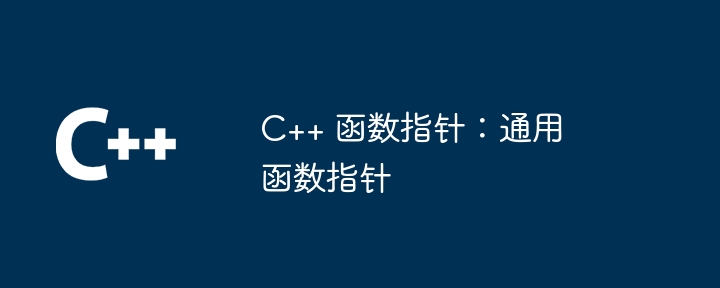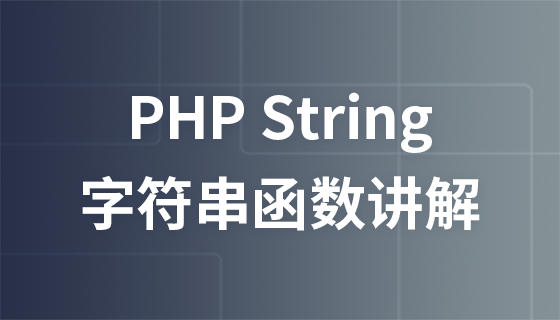是的,c++++ 中存在通用函数指针。具体步骤如下:声明通用函数指针:void* genericfuncptr;将函数强制转换为 void 类型的指针:genericfuncptr = reinterpret_cast<void>(&myfunc);使用强制转换将其转换为函数指针类型:int (*calledfunc)(int) = reinterpret_cast<int (*)(int)>(&genericfuncptr);使用函数指针调用函数:calledfunc(5);

C++ 函数指针:使用通用函数指针
简介
函数指针是一种强大的 C++ 特性,它允许您将函数作为普通数据来处理。通用函数指针是一种特殊的函数指针,可以指向具有任何签名(即参数和返回值类型)的函数。
立即学习“C++免费学习笔记(深入)”;
声明通用函数指针
要声明一个通用函数指针,请使用 void* 数据类型:
void* genericFuncPtr;
将函数赋值给通用函数指针
要将函数赋值给通用函数指针,请将函数强制转换为 void*:

本文档主要讲述的是OpenMP并行程序设计;OpenMP是一个编译器指令和库函数的集合,主要是为共享式存储计算机上的并行程序设计使用的。目前支持OpenMP的语言主要有Fortran,C/C++。 OpenMP在并行执行程序时,采用的是fork/join式并行模式,共享存储式并行程序就是使用fork/join式并行的。希望本文档会给有需要的朋友带来帮助;感兴趣的朋友可以过来看看
 0
0

genericFuncPtr = reinterpret_cast<void*>(myFunc);
在这里,myFunc 是要分配的函数。
从通用函数指针调用函数
要从通用函数指针调用函数,请使用强制转换将其转换为函数指针类型:
int (*calledFunc)(int) = reinterpret_cast<int (*)(int)>(genericFuncPtr); int result = calledFunc(5);
在这里,calledFunc 是使用通用函数指针创建的函数指针,它指向与 myFunc 相同的函数。
实例
以下是一个使用通用函数指针的示例:
#include <iostream>
#include <functional>
using namespace std;
void print_value(int value) {
cout << "Value: " << value << endl;
}
void print_string(string str) {
cout << "String: " << str << endl;
}
int main() {
// 创建通用函数指针
void* genericFuncPtr;
// 分配要调用的函数
genericFuncPtr = reinterpret_cast<void*>(print_value);
// 使用强制转换为函数指针类型
int (*funcPtr)(int) = reinterpret_cast<int (*)(int)>(genericFuncPtr);
// 使用函数指针调用函数
funcPtr(5);
// 再次分配通用函数指针,指向另一个函数
genericFuncPtr = reinterpret_cast<void*>(print_string);
// 更新函数指针类型
funcPtr = reinterpret_cast<void (*)(string)>(genericFuncPtr);
// 调用函数
funcPtr("Hello, world!");
return 0;
}输出:
Value: 5 String: Hello, world!
以上就是C++ 函数指针:通用函数指针的详细内容,更多请关注php中文网其它相关文章!

每个人都需要一台速度更快、更稳定的 PC。随着时间的推移,垃圾文件、旧注册表数据和不必要的后台进程会占用资源并降低性能。幸运的是,许多工具可以让 Windows 保持平稳运行。




Copyright 2014-2025 https://www.php.cn/ All Rights Reserved | php.cn | 湘ICP备2023035733号